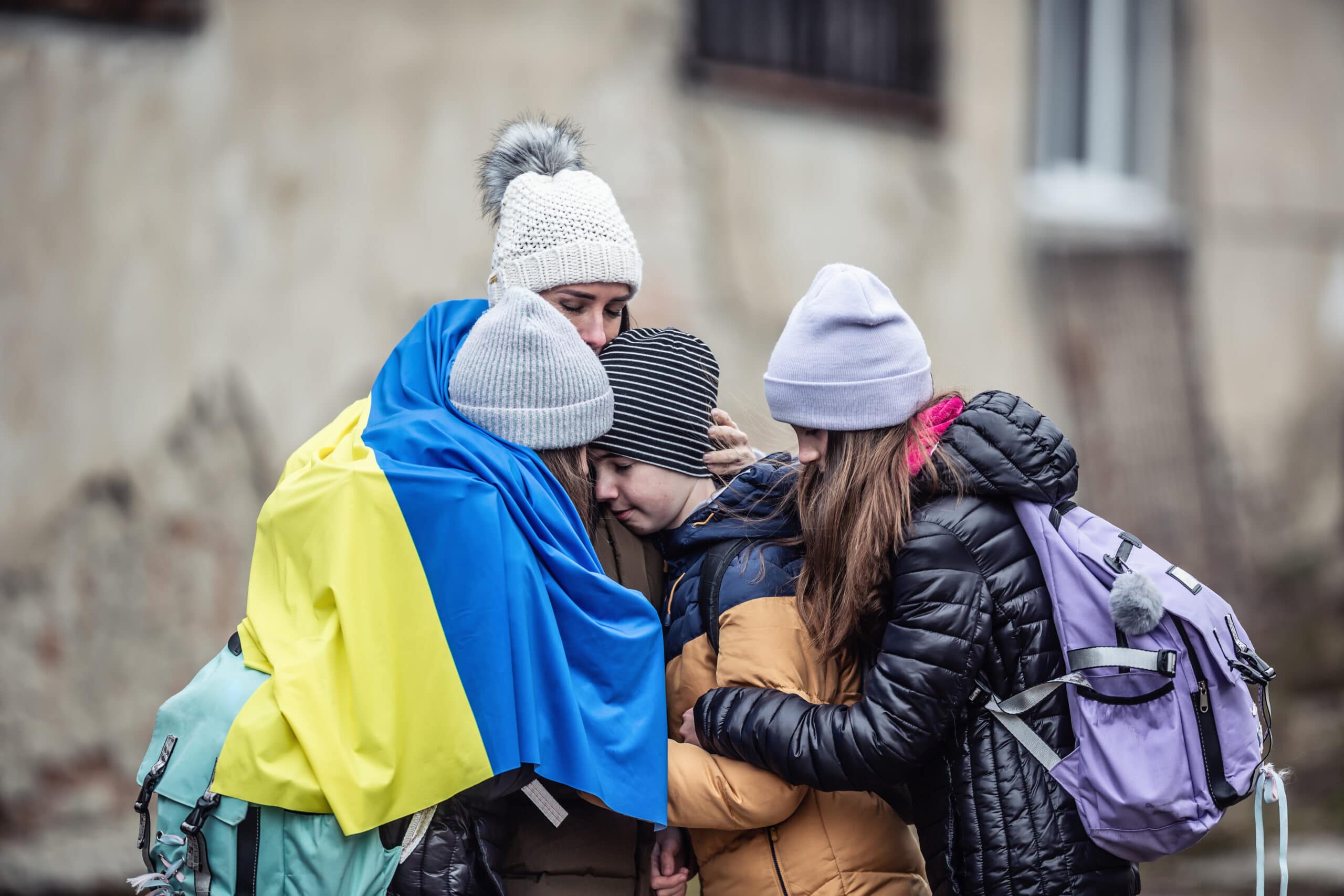Many people living in Ukraine – and the countries on its borders – are reporting symptoms of anxiety and depression, as well as food and financial insecurity, feelings that have risen to new heights since Russia started its war with Ukraine at the end of February.
The mental wellness data are being collected via the COVID-19 Trends and Impacts Survey (CTIS) and analyzed by the Johns Hopkins Center for Communication Programs as part of its COVID Behaviors Dashboard project. Since data collection began in May 2021, more than 35 million people in more than 200 countries have responded to the survey, sharing not just their knowledge, attitudes and practices around COVID, but also their feelings of nervousness, depression and worry over time.
In January 2022, according to the data, fewer than half of Ukrainians surveyed reported feelings of nervousness and depression. By March, the figure went up to two-thirds reporting similar emotions, with higher proportions among women and those in urban areas. Those who said they were very or somewhat concerned about having enough food to eat jumped from 25 percent of Ukrainians in January to nearly 60 percent in March. The numbers also rose significantly in Moldova, Poland, Slovakia and Romania, where many refugees from Ukraine have been settled temporarily.
In nearby Belarus and Russia, which are not taking in refugees, roughly two-thirds of respondents said they were experiencing some anxiety or depressive symptoms. The survey collects its data via Facebook, which was banned in Russia on March 4. Still, enough people responded to provide useful data from the country.
On each mental wellness measure in the survey, Ukrainians and others saw a lessening of their psychological burdens in April, but they remained well above January’s numbers.
Mental health and wellness data are rarely collected on a massive global scale such as this, experts say, so having this type of baseline information is key to understanding the toll not only of the COVID-19 pandemic, but of the added burdens associated with armed conflict.
“These single-question statistics do not provide the precision of other depression, anxiety, or food insecurity surveys or diagnostic tools but they do provide a snapshot indicator to watch over time,” says CCP’s Dominick Shattuck, PhD, who leads the COVID Behaviors Dashboard. “Data like this helps public health practitioners understand what policy or programmatic interventions are needed.”
Having the breadth of the data collected across the entire region impacted by the crisis can help public health programmers put together a regional-level map of needs, perceptions and more, says Jeni A. Stolow, PhD, MPH, a researcher and collaborator on the COVID Behaviors Dashboard.
“The Ukraine crisis is tremulous,” she says. “Nobody knows what it will look like in the coming days, weeks, months, and so on. We also don’t know how far-reaching the situation is regarding refugees, displaced populations, host country capacity, and so on. So, data like these can be useful for tracking how the ongoing conflict is impacting people from a mental health perspective.”
It’s not just Eastern Europe where nerves are frayed, the survey finds. While they are not experiencing war close-up, many survey respondents across the globe and across all age groups are worried about finances and are asking for more information about the economic impacts of the pandemic. Among the locations in Asia, people in Hong Kong – which experienced massive lockdowns and the highest COVID-19 case numbers since the start of the pandemic – reported some of the highest levels of anxiety and depression, more than 50 percent of respondents, in March 2022.
These concerns can impede efforts to halt the spread of COVID-19.
“COVID-19 activities must consider the economic impact of the pandemic in messaging
and programmatic interventions” Shattuck says. “People who are concerned about household finances or food security may not be able to take the same pandemic precautions as those with greater financial security. Even missing a couple days of work due to vaccination side effects may be too great a loss for some.”





